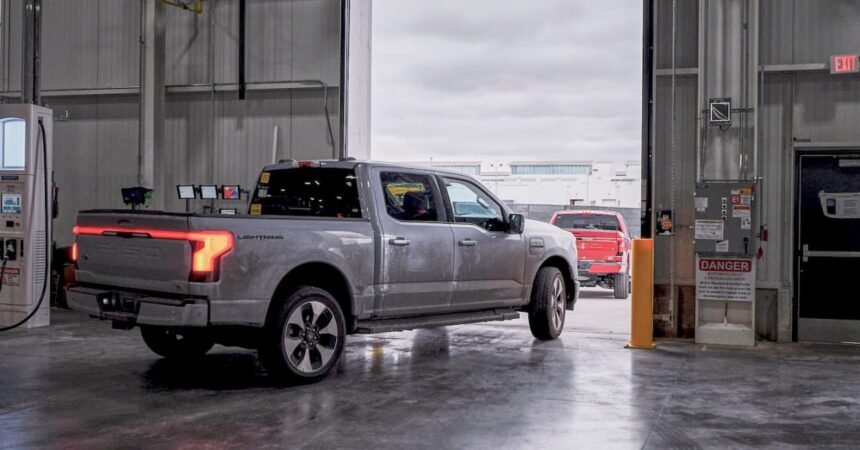Ford recently launched production at its new EV battery plant in Glendale, Kentucky, under its joint venture with SK On, BlueOval SK. The plant will initially supply batteries for the F-150 Lighting electric pickup but has ambitions to sell excess batteries to new clients.
BlueOval SK CEO Michael Adams expressed interest in exploring opportunities for new business and securing buyers for the surplus batteries. Potential clients could include energy storage companies or other electric vehicle manufacturers. While there were rumors of a deal with Nissan, no official confirmation has been made yet.
The decision to sell excess batteries comes as Ford faces challenges in the EV market, with sales down nearly 10% compared to last year. With the $7,500 tax credit set to expire soon, competition in the EV market is expected to intensify.
Despite initial plans to employ 2,500 workers at the Kentucky facility, Ford has now scaled back to 1,450 employees. Production at a second plant in Kentucky has been paused as part of a broader strategy shift. However, the third battery plant in Tennessee is still on track to begin production in 2027.
Ford’s revamped EV strategy focuses on launching smaller, more affordable electric vehicles using the new “Ford EV Universal Platform.” The first vehicle based on this platform will be a mid-size electric pickup priced at around $30,000, with deliveries expected to start in 2027. Ford plans to use lower-cost lithium-iron-phosphate batteries manufactured in Michigan with technology licensed from China’s CATL.
In an effort to turn a profit in the EV market, Ford is exploring new revenue streams such as selling excess batteries. The company aims to ensure that its upcoming models are profitable from the first year of launch. Ford’s proactive approach aligns with other automakers like Toyota, who are also looking to sell EV batteries to power vehicles from other manufacturers.
Overall, Ford’s strategic shift towards more affordable electric vehicles and potential battery sales signals a commitment to sustainability and profitability in the evolving EV market.







